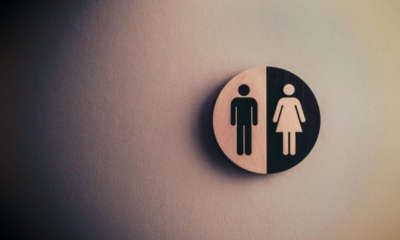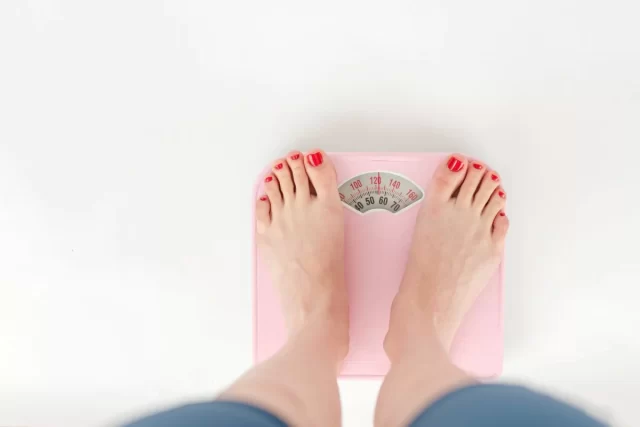10 Ways to Control Urinary Incontinence

There’s so much emphasis on losing weight, that it can be hard to understand why gaining back weight after illness could be a problem. After all, you just have an extra serve of food at dinner or indulge on pizza with wine and you’re back on your ideal weight, right?
Unfortunately, that’s not the case for everybody. Some diseases, medications and treatments make it difficult to reach a healthy weight, and genetics play a role too. What’s more, a diet of French fries, ice cream and soda sounds tasty, but these foods can seriously upset your stomach or worsening your existing symptoms by increasing the overall inflammation in your body. Not exactly what you want when you’re already chronically ill.
Unintentional weight loss can be caused by temporary health problems, like a gastrointestinal infection, vomiting and diarrhea, or a momentary loss of appetite. But there can also be a more structural cause for weight loss, such as malabsorption of nutrients or metabolic changes from thyroid problems or type 1 diabetes. More so, nausea and a lack of appetite are common side-effects of certain medications and treatments, like chemotherapy.
If you’re underweight – meaning your body mass index (BMI) is 18,5 or under – your body may not be getting all the nutrients it needs to function well. As a result, you may be feeling tired all the time or get more sick more frequently. Even worse, you could develop anemia, irregular periods, skin problems and osteoporosis from being underweight.

A lot depends on the cause of your weight loss and your personal situation. If possible, you should always work with medical professionals to treat the underlying problems first.
When you suffer from ongoing stomach and gut problems, malabsorption, side-effects from chemo, eating disorders or being severely underweight, please contact your doctor for specific dietary advice that suits your unique needs. You also want to seek out tailored advice from your physician and pharmacist if your medications could be causing a lack of appetite. The following advice is meant for information purposes only and will mostly focus on behavioral strategies for a general public, not for your specific condition.
Having said that, if you’d like to gain back weight in a healthy way after a bad infection or long sick bed, here are 11 tips to keep in mind.

Just like it’s hard to lose weight without a strategy and preparation, it can be challenging to put on the pounds without some kind of action plan too.
First of all, learn which healthy foods are heavy in calories without containing too much sugar and trans-fatty acids. The Geriatric Dietitian created a list of wholesome but energy-dense ingredients, like fatty fish and meat, full-fat dairy products, nuts and seeds, avocado, coconut, dried fruits and (sweet) potatoes.
If you struggle with digestive problems, food allergies or other chronic illnesses, it’s wise to consult a dietitian to help you navigate which foods or food pattern works best for your condition and lifestyle.
According to Gillian Killiner from 121 Dietitian, “diet is a critical stepping stone to optimal health. If you can focus on eating from as natural sources as possible this will reduce the burden on the body and assist with repair and recovery. You may find that certain foods do not agree with you. Do not be tempted to cut out major food groups but seek advice on the best way to navigate these temporary hiccups. It does take time to get it right but don’t give up.”
Next, plan how you’ll incorporate the best real foods to gain weight into your daily diet. Of course you can add calorie-heavy ingredients to your usual meals, but it can be helpful – and tasty! – to collect some new healthy recipes with salmon, Greek yogurt, cottage cheese or walnuts too.
Finally, you could make a weekly meal plan for healthy weight gain to save yourself time and energy. And if your health fluctuates on a daily basis, prepping a batch of turkey meatballs, creamy soup or chia puddings can help you stick to your health goals on days when you feel exhausted or in pain.
According to Mayo Clinic, eating more frequently during the day helps you consume more calories if big meals make you feel full fast. Depending on your appetite and digestion, you can have 5 to 6 small meals a day or eat 3 larger meals with 2 to 3 snacks in between.
Ideally, you should eat something every 3 hours. Even if you’re not that hungry in the morning, try to have a light breakfast. And to gain back weight after illness, you could snack on homemade energy bars, healthy trail mix with nuts and dried fruits, or full fat yogurt in between meals.

Normally I’m a big proponent of drinking mostly (flavored) water and tea to support your health. But if you’d like to gain weight, drinking your calories can be helpful way to do so. I’m not talking about sipping sugar-laden soda all day, but energy-dense drinks like a green smoothie with avocado and banana, a healthy milkshake with Greek yogurt or a refreshing mango lassi are easy to consume and digest. On colder days, you could also warm up with turmeric golden milk, a superfood latte or a healthy hot chocolate.
Just make sure you time your drinks wisely – in between meals as a snack (or paired with a snack) – because you don’t want to ruin your appetite for lunch or dinner. Don’t drink right before or during meals if you feel full quickly. Having a broth or soup as a starter can also fill up your stomach without adding calories, so that’s not recommended for healthy weight gain either.
A little extra every day can add up to significant changes over time. And condiments contain more calories than most people realize. Plus, sauces and dips bring tons of flavor to your meals, which is helpful when you don’t have much appetite.
So whip up a peanut sauce with coconut milk to go with Asian rice bowls and serve guacamole and sour cream with Latin-flavored meals. You can also give your regular meat and veggies a fancy twist with a creamy mushroom sauce or a Whole30 béarnaise. Of course homemade pesto tastes great with all your Italian cooking. And what better than dipping crunchy veggies and nachos in hummus, baba ganoush or tzatziki?
Another easy way to add more calories to your meals is by using all the toppings all the time. Here’s how:
Store your favorite toppings in glass containers and put them somewhere you can easily see and grab them.

Who needs an excuse to have dessert every night? I’m not talking about store-bought ice-cream or chocolate mousse, but more naturally sweetened desserts like chia pudding, frozen yogurt or a healthy apple crumble will let you consume more calories in the best way ever. So after dinner, treat yourself to a warm fruit salad with dark chocolate, almonds and coconut flakes, banana ‘popsicles‘ or a refreshing no-bake lemon cheesecake.
When it comes to sweet snacking during the day, you could also make a batch of healthy blueberry muffins to take with you or have a chocolate energy bite with your mid-morning coffee.
Who says sandwiches should only contain one kind of filling? One tasty way to gain back weight after illness is to lunch with a multilayered sandwich, starting with a spread like cottage cheese, hummus or tapenade. Of course you can also go sweet with pure peanut butter, chia jam or a chocolate hazelnut spread.
Next, put your favorite deli meats, cheese, boiled egg or avocado on your sandwich. And finally, finish off with a healthy topping like arugula, cucumber, slices of tomato or banana for even more health-boosting nutrients.
According to WebMD, one tablespoon of olive oil can add approximately 120 calories. So using a little more olive oil when you’re cooking is an effortless trick to slowly gain back weight after illness.
You can also drizzle some olive oil over your vegetables or be generous with the dressing on your salad. Healthy fats even increase your absorption of vitamins A, D, E and K, so that’s a win-win in my book!

Do you struggle to gain back weight after illness because you simply don’t feel like eating?
Firstly, talk to your physician or pharmacist if your condition or medications could be causing you to not feel hungry at all. Loss of appetite is common in bacterial and virus infections, digestive problems and food allergies, but also accompanies chronic illnesses like diabetes, thyroid problems, Crohn’s disease, heart failure and depression. Medical treatments like sedatives, antibiotics, chemotherapy and immunotherapy can also suppress your appetite.
After you’ve ruled out these medical issues, you could try to work up an appetite by exercising. Focus on gentle muscle building exercises like strength and resistance training over cardio, because you want to put on muscle, not burn all the extra calories you’re eating.
By the way, feeling stressed, anxious or in pain could also stop you from noticing when you’re getting hungry. Slowing down and becoming more mindful of what your body is telling you can help increase your appetite in that case, as well as creating meal time routines.
If nausea ruins your appetite, Gillian Killiner from 121 Dietitian advises to not let your stomach get too full or too empty. It may also help to choose cold foods and drinks, because warm foods tend to have a stronger smell.
And in terms of enjoying the taste of food more, variety is called the spice of life for a reason. Work different flavors and textures into your meals to effortlessly get some extra bites in.
When you’re chronically ill or still recovering from a long sick bed, you may not always have the energy to make multiple meals a day. That’s when it helps to have some energy-saving strategies in the kitchen:

Gaining back after illness weight takes time, especially if you continue to struggle with digestive issues, loss of appetite or hormonal imbalances. You need 3500 calories for 1 lb or 7700 for 1 kg of weight gain – and that’s on top of the calories your body burns on a daily basis. Healthline advises you to consume an extra 300-500 calories each day to gradually gain your weight back.
If you do the math, you see you’ll have to be patient when putting the pounds back on. So give yourself that time and keep moving consistently towards your goal.
For more tailored tips on how you can gain weight in a healthy way, virtually consult 121 Dietitian or ask your local medical providers for advice. And again, always seek help from your doctor if you experience unintentional weight loss to find the underlying cause.
What are your best tips for gaining back weight after illness?
If you enjoyed this article, you might also like How to Start – and Stick to – Any Kind of Medical Diet or check out these 9 Tips and Tools for Healthy Cooking with Chronic Illness.
